Find the Best Crushed Rock Supplier Near You
- Post a job
- Receive multiple quotes
- Choose your preferred Crushed Rock provider
Where do you need Crushed Rock?
Describe your job and our suppliers will send you quotes
Crushed Rock Providers in Australia
Find top-quality grade crushed rock and crushed stone through iseekplant’s extensive network of providers, catering to diverse projects like drainage and pipelaying, retaining walls, and landscaping needs. From soil supplies, road base, and landscaping supplies to materials for subdivisions or decorative landscaping, our suppliers offer premium solutions. Whether enhancing a residential garden or developing large commercial projects, they deliver reliable materials that meet the highest industry standards to ensure lasting results.
iseekplant connects you with two main types of crushed rock suppliers:
- Quarry Suppliers: Handle bulk orders for civil and commercial projects, typically located in regional areas.
- Landscape Suppliers: Serve residential and smaller commercial projects with smaller order minimums, conveniently near metro areas.
Crushed Rock Rates Per Tonne
Crushed rock prices vary by type, with factors like source, quality and transport affecting the final cost. This table offers an overview of average rates per metric tonne to help you budget your project effectively:
| Type of Crushed Rock | Average Rate (Per Metric Tonne) | Application |
|---|---|---|
| Limestone | $35 - $60 | Road base, sub-base layers, drainage |
| Granite | $40 - $65 | High-strength concrete aggregates, landscaping |
| Basalt | $30 - $50 | Road base, asphalt production, concrete aggregate |
| Gravel | $25 - $50 | Landscaping, driveways, pathways |
| Recycled Concrete Aggregate (RCA) | $20 - $35 | Eco-friendly projects, sub-base layers, road base |
Note: All prices listed on this page are estimates, exclude GST and are in AUD. Price estimates can vary based on location and additional project requirements.
Crushed Rock Rates Per Cubic Metre
Our suppliers also offer a range of crushed rock in cubic metres. Here are the cost estimates for different crushed rock types per cubic metre:
| Type of Crushed Rock | Updated Cost (Per Cubic Metre) | Application |
|---|---|---|
| Road Base (Virgin) | $50 - $85 | Controls moisture, levels surfaces; base for asphalt or concrete driveways. |
| Road Base (Recycled) | $70 - $90 | Eco-friendly alternative for driveways and compacted areas. |
| Gravel (Virgin) | $90 - $160 | Decorative landscaping, driveways, pathways; includes river gravel, blue metal. |
| Gravel (Recycled) | $65 - $90 | Recycled crushed concrete gravel for cost-effective applications. |
| Stone Dust | $120 - $140 | Base for car parks, concrete slabs, and paths; fine blue metal product. |
| Crush and Run | $40 - $50 | Driveways and compacted surfaces; mixture of gravel and limestone. |
| Crushed Limestone | $50 - $60 | Driveways, footpaths; compacted base to level high-traffic areas. |
| Sand and Aggregate Blends | $110 - $170 | Compacting, mixing for concrete; includes pit/plaster sand, bedding, concrete blends. |
| Pea Gravel | $130 - $155 | Decorative ground cover for pathways, water features, and high foot traffic areas. |
| Caliche | $35 - $45 | Surface and base material; sedimentary rock made of calcium carbonate. |
| Crushed Granite | $70 - $90 | Base for footpaths and driveways; durable and aesthetic. |
Additional Costs to Consider
Beyond the cost of materials, crushed rock projects incur additional expenses, such as delivery and installation. Planning for these can help ensure your project stays within budget:
| Additional Cost | Updated Rate | Description |
|---|---|---|
| Delivery Charges | $30 - $120 per delivery | Varies by distance and order size. |
| Installation/Spreading | $50 - $80 per hour | Labour for spreading crushed rock. |
| Site Preparation | $60 - $180 per hour | Land clearing, excavation, and levelling before installation. |
| Environmental Fees | $10 - $25 per tonne | Covers recycling and waste management costs. |
| Fuel Surcharge | 5% - 12% of total cost | Added to offset fuel expenses for long-distance deliveries. |
| Minimum Order Fees (Landscape) | $70 - $120 | Applied for small orders from landscape suppliers to cover handling costs. |
| Minimum Order Fees (Quarry) | $120 - $250 | Charged by quarry suppliers for bulk orders to cover transport logistics. |
Reach out to our network through our Get a Quote tool for a comprehensive estimate, tailored to your project specifics.
Comparing Different Types of Crushed Rock
Each type of crushed rock offers unique benefits and drawbacks, making them suitable for different applications. Understanding these can help you choose the right material for your project. This table offers a quick comparison of the different types of crushed rock, taking into account their best uses, pros, and cons:
| Type | Best For | Pros | Cons |
|---|---|---|---|
| Limestone | Garden paths, architectural details | Natural look, helps with soil pH balance | Susceptible to acid rain, varies in density and colour |
| Granite | Driveways, decorative features | Durable, aesthetically pleasing | Expensive, harder to install |
| Basalt | Road bases, high-traffic areas | Strong, resists weathering | Higher cost than limestone |
| Gravel | Landscaping, pathways, driveways | Versatile, good drainage, natural appearance | Needs maintenance, can shift |
| Recycled Concrete Aggregate (RCA) | Sub-bases, under paving | Eco-friendly, cost-effective, compacts hard | May contain metal, inconsistent sizes |
| Road Base | Foundations for paths, driveways | Stable, promotes drainage, cost-efficient | Requires proper compaction for best results |
| Stone Dust | Paver bases, between stones | Compactable, creates stable base, blocks weeds | Can be messy, not ideal for plant growth |
| Crush and Run | Sub-bases, driveways | Durable, compacts hard, cost-effective | Dusty, may need replenishment |
| Crushed Limestone | Drainage layers, road bases, driveways | Durable, cost-effective, compacts well | Less aesthetic, generates dust |
| Sand and Aggregate Blends | Concrete mixes, landscaping | Versatile, optimal for construction projects | Moisture can vary, requires precise blending |
| Pea Gravel | Walkways, garden beds | Smooth texture, drains well, reduces weeds | Can shift, unstable in high-traffic areas |
| Caliche | Rural driveways, road construction | Hard, inexpensive, durable | Hard to work with, limited availability |
| Crushed Granite | Pathways, decorative features, landscaping | Good drainage, durable, unique look | Expensive, needs edging to prevent migration |
| Mulch | Soil enrichment, ground cover | Retains moisture, prevents weeds, aesthetic | Decomposes over time, requires replenishment |
| Pebbles | Decorative ground cover, pathways | Adds texture, helps with drainage | Can scatter, not ideal for heavy traffic |
Looking for Premium Crushed Rock Solutions in Australia?
Got a crushed rock quarry quandary (pun intended)? Our extensive network of premium crushed rock suppliers ensures your construction or landscaping project stands on solid material. Reach out to a local quarry if you need bulk crushed rock or a landscaping supplier if you have a smaller job.
Worried about transporting your bulk materials? No problem. We can link you up with the best dump trucks, tipper trucks and trailers, ensuring safe delivery from quarry to site.
If you're stuck between a crushed rock and a hard place with your project needs, reach out to us at projects@iseekplant.com.au or give us a ring at 1300 691 912. Ready for a rock-solid start? Hit 'Get a Quote' now.
Popular Crushed Rock Locations
Become a supplier
How It Works
Crushed Rock FAQs
Here are some frequently asked questions and tips on finding the right crushed rock supplier for your job.
What do we have to offer?
Want to Know More?
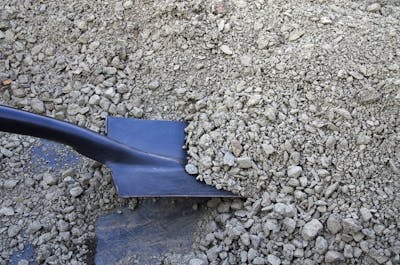
Road base cost guide 2022- Find suppliers | iseekplant
Road base refers to the upper-most layer of rock or gravel in a pavemen...
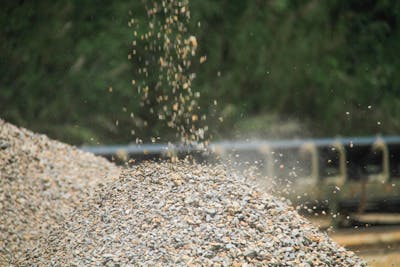
Crushed Rock Cost Guide 2022- Find suppliers | iseekplant
Crushed rock can be used for a number of purposes from driveway gravel,...
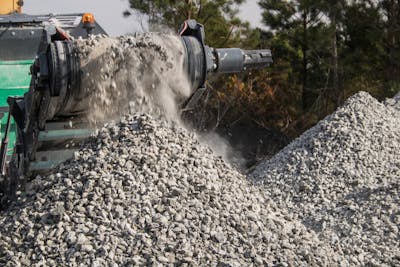
What is Crusher Dust? The Benefits, Types & Where to Buy
Crusher dust or stone dust is a compactable, economical packing material...
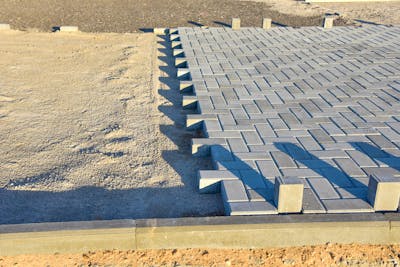
Crusher Dust Cost Guide 2022- Find best costs here
Crusher dust is a compacted material used for stabilizing surfaces. It ...
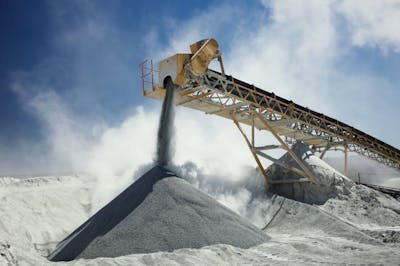
Crusher Dust Vs Road Base: Which material is best in road construction?
Many products can be used as durable packing materials which create a co...
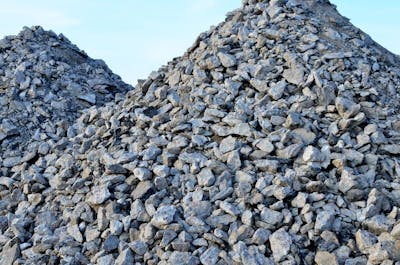
Concrete Recycling 101 - Can Concrete be Recycled?
Construction and demolition waste in Australia weighs 15.1 million tonne...
